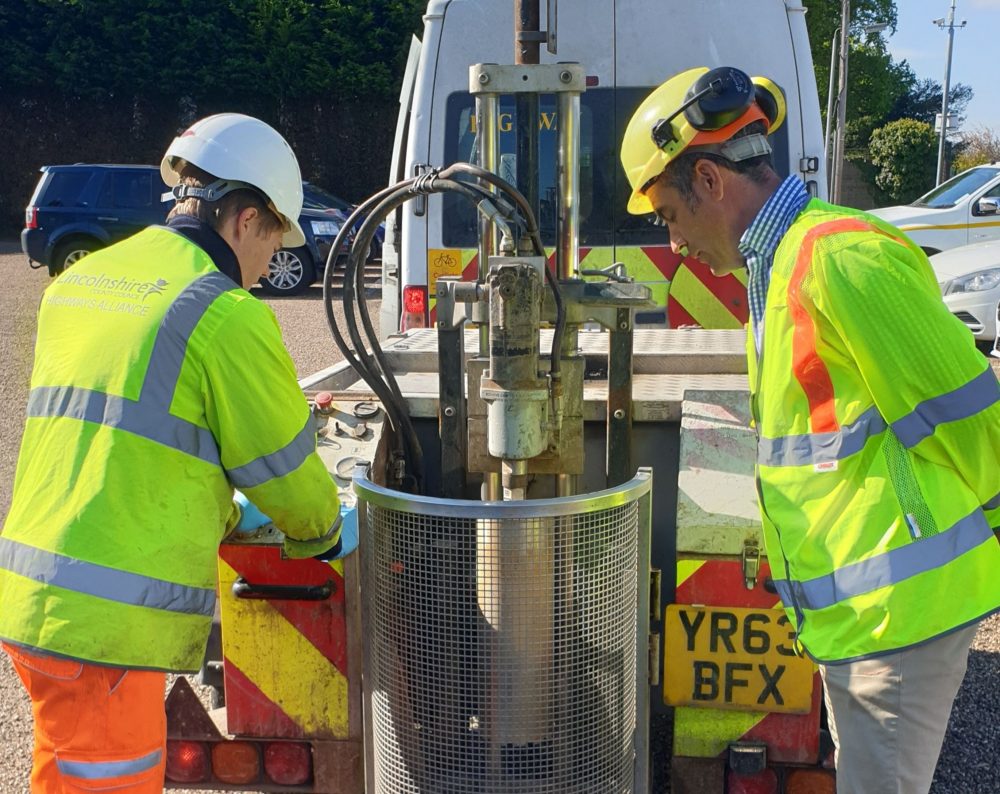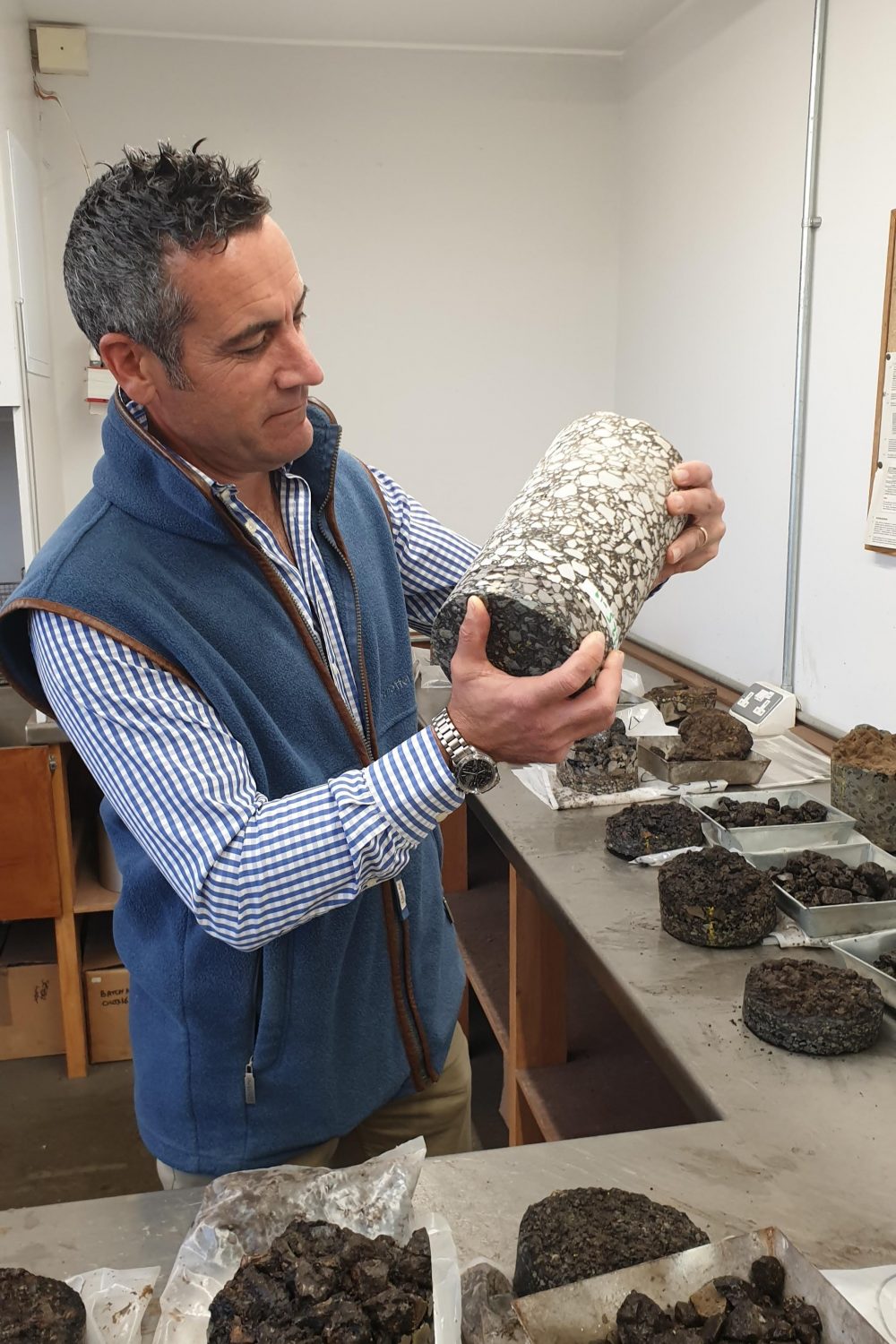Minster Surfacing developing technology to make roads 90% recycled
Lincolnshire-based road surfacing firm, Minster Surfacing is developing technology that could lead to all roads being made from 90% recycled material.
Minster Surfacing works on roads across Lincolnshire on behalf of Lincolnshire County Council and Kier Group as well as roads in Cambridgeshire and Northamptonshire and major developments across the country.
Minster Surfacing has long been committed to green innovations and it currently uses technology to recycle 50% of the material it removes from the roads it repairs and resurfaces.
Now, the company is aiming to dramatically increase its recycling capability by developing new technology that could enable roads to be made from 90% recycled material in the next year.
The systems being developed would significantly reduce the carbon footprint of road surfacing work: It would reduce the reliance on quarries, prevent hundreds of thousands of tonnes of material from going to waste and it would reduce the distance that material has to be transported.
Minster Surfacing’s research and development is being evaluated by Lincolnshire County Council’s in-house materials laboratory (Lincs Laboratory) that provides soils and materials testing, data capture and consultancy services to the highway construction industry.
Managing director of Minster Surfacing, Bruce Spencer-Knott said: “When I first started Minster Surfacing, I wanted to use technology to transform the way the industry works for the better. We’ve already made great progress in reducing the environmental impact of our work through our recycling technology and high-tech solutions that improve the accuracy and efficiency of our work, but we’re now hoping to do something even more impressive which should enable roads to be almost entirely made with recycled material.
“We’re testing ways of reliably and practically making high quality, durable roads that require only a very small amount of completely new material. What we’re working on could be a complete game-changer.
“Of course, researching and developing a new way of creating roads is a complex and sensitive process because everything that gets used on the roads has to be of the highest standard. That’s why we’re so lucky to have such a good laboratory facility available in the county which is able to help us to push the boundaries and experiment with new ways of working. I can’t wait to unveil what we’ve been working on and to see our idea become reality.”
Cllr Richard Davies, executive member for highways at Lincolnshire County Council said: “We’re really pleased to be supporting Minster Surfacing’s research and development for more sustainable road surfacing. Our Lincs Laboratory is a great facility which supports innovation while ensuring that all the work that gets carried out on our roads is of the highest standard. Minster Surfacing has demonstrated its commitment to cutting its carbon footprint in its work across the county while producing high-quality results so I’m really looking forward to seeing their new green innovations being used on Lincolnshire’s roads in future.”
Traditionally, roads are made with distilled crude oil and mineral aggregate; two resources that are finite and in short supply in this country and around the world. These materials have to be obtained through drilling or quarrying and then have to be refined, mixed, heated and transported long distances. This means the whole process has a significant carbon-cost and is vulnerable to price rises from the increasing global demand for oil and minerals.
While Minster is able to recycle old roads to create the material needed for the lower parts of a road surface, the system that’s being developed would see Minster Surfacing producing material that’s 95% recycled for use in all but the very top layer of a road. This means that, overall, roads would be around 90% recycled using the new system.
Local authorities and contractors from across the region will be able to recycle material using the technology and the material would be available for use by other contractors and supply chain partners across the UK. It’s hoped that the new system could be in operation by the end of 2019.
To date, Minster Surfacing is routinely producing roads that are 50% recycled using material that’s removed from roads and other construction projects to produce binder-course products and a sustainable alternative to asphalt. A quantity of additional material is also produced using secondary aggregates, with by-products from the steel industry being used instead of quarried material.
In recognition of the company’s recycling work and other waste reducing technologies that are used throughout the construction process, Minster Surfacing was named Best Business and Overall Winner of the Lincolnshire Environmental Awards 2018 and it won the award for Innovation in Construction in the Lincolnshire Innovation & Technology Awards 2018.
This year, the company is a finalist for five of the most prestigious green awards in the country, being shortlisted for two National Recycling Awards and three BusinessGreen Leaders Awards.































